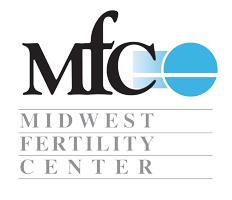Conceiving a child without fallopian tubes or with severely damaged fallopian tubes is a topic that has gained attention in recent years due to advancements in reproductive medicine. The fallopian tubes play a crucial role in natural conception, as they are responsible for transporting the egg from the ovary towards the uterus and at the same time transfer sperm from the uterus to the fallopian tube, where fertilization typically occurs. The fertilized egg undergoes initial development in the fallopian tube and the two to three days embryo is then transferred into the uterus where the rest of the pregnancy takes place. However, for some women, the absence or sever damage of fallopian tubes due to surgical removal, infectious diseases or a congenital condition can present a significant challenge when trying to conceive.
In the past, the absence of fallopian tubes often meant that conception was not possible, and women in this situation may have felt disheartened by the limitations it imposed on their fertility. However, thanks to the remarkable progress in assisted reproductive technologies, such as in vitro fertilization (IVF), women without or with severely damaged fallopian tubes now have viable options for conceiving a child.
IVF involves the retrieval of eggs from the ovaries, which are then fertilized with sperm in a laboratory setting. The resulting embryos are cultured for a few days before being transferred into the uterus, where they can implant and develop into a pregnancy. This process bypasses the need for fallopian tubes, making it a suitable option for women facing this particular challenge.
Another approach that has shown promise for women without fallopian tubes is tubal re-anastomosis, a surgical procedure that aims to reconnect the remaining segments of the fallopian tubes. While this technique may not be suitable for all individuals, it can be a viable option for some women who desire to restore their natural fertility. Please note that such repair of the fallopian tubes is also associated with high risk for the life threatening condition of ectopic tubal pregnancy.
It’s important to note that the emotional journey of conceiving without fallopian tubes can be complex, and individuals may experience a range of feelings as they navigate this path. Seeking support from healthcare professionals, your fertility specialist https://mfcfamily.com/, and counselors can be invaluable in addressing the emotional aspects of this process.
Furthermore, it’s essential for women considering assisted reproductive options to have a thorough understanding of the procedures involved, as well as the potential challenges and success rates associated with each approach. Open communication with healthcare providers and fertility specialists can help individuals make informed decisions that align with their personal circumstances and goals.
Ultimately, the ability to conceive without fallopian tubes represents a remarkable advancement in reproductive medicine, offering hope and possibilities to individuals who may have once felt that their options were limited. By staying informed, seeking support, and exploring available options, women without fallopian tubes can pursue their dreams of building a family with optimism and confidence.

